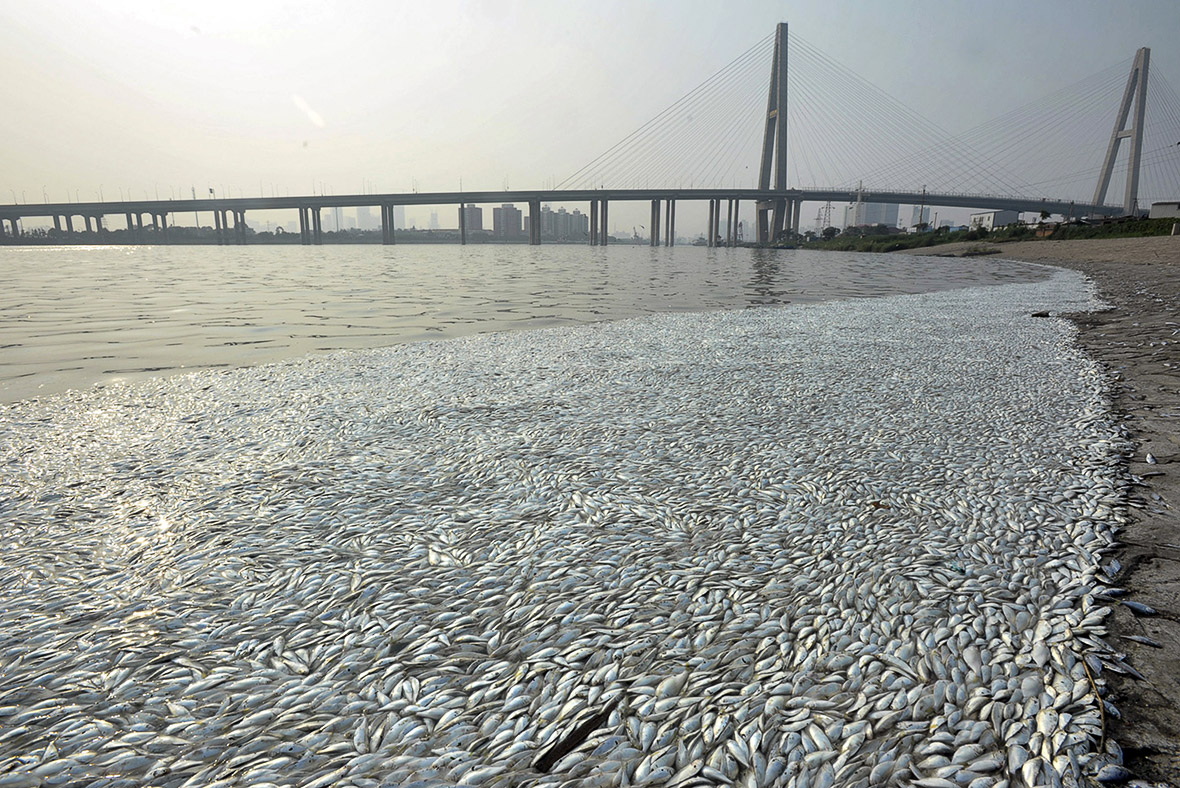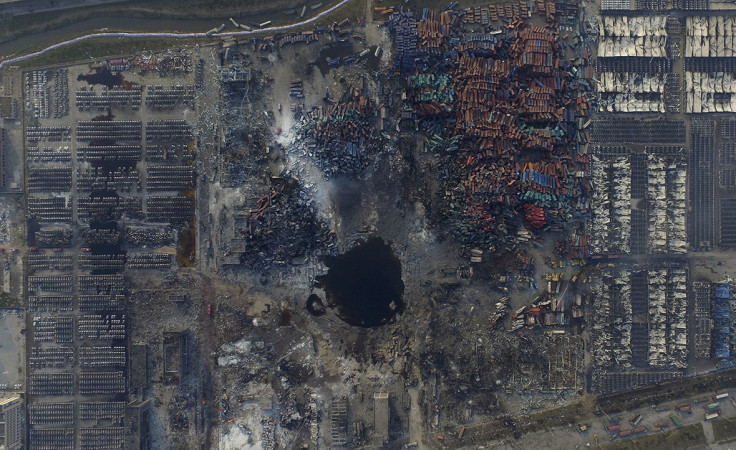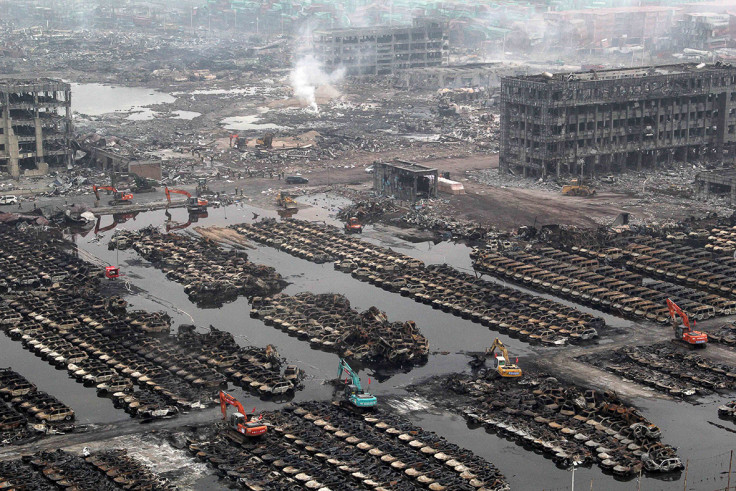Tianjin explosion: Thousands of dead fish raise fears of cyanide leak, despite denials [Photo report]
Thousands of dead fish have washed up on the banks of the Haihe river about six kilometres from the site of the explosions at a chemical warehouse in Tianjin, stoking public fears over a leak of toxic chemicals.


Officials said the dead fish were caused by regular seasonal low oxygen levels in the water and were not related to the blasts. Bian Shaowei, inspector with Tianjin Environmental Monitor Centre, said no cyanide was found in the water where the dead fish were spotted.
In an effort to test if the air inside the blast zone is safe, authorities took the unusual step of placing live animals in cages near the site of the explosions. According to local media, these guinea pigs (actually rabbits, pigeons and chickens) were still alive after two hours.


, high levels of toxic chemicals have been found inside the core area, more than a week after the massive explosions that left 179 people dead or missing. Technicians have detected levels of cyanide as much as 356 times the national safe level within the evacuated area, although levels outside the zone show no undue contamination, according to state media reports. Workers in protective suits have started clearing wreckage, including charred car frames and crumpled shipping containers, from the site.



The explosions created a hole measuring 100m wide and six metres deep. The crater is filled with an estimated 50,000 tons of water that is contaminated with cyanide. Equipment and pipes are being used to transfer the water to sewage treatment plants at a rate of 5,000 tons per day. The whole process could take two to three months.

Four new fires have broken out at the site. The official Xinhua news agency said one of the "combustion points" was in a logistics site for automobiles near last week's blast. The other three were within the central blast area, it said, without giving any explanation of the cause of the fires.

State authorities have confirmed that more than 700 tonnes of the deadly chemical sodium cyanide were stored at the Tianjin warehouse that blew up.






Executives of Tianjin Dongjiang Port Ruihai International Logistics, the company whose chemical warehouse exploded, used their connections to obtain fire safety and environmental approvals, according to the official Xinhua state news agency. "When we needed a fire inspection, I went to meet officials at the Tianjin port fire squad," said Dong Shexuan, 34, deputy head of the company. "I gave them ... the files and soon they gave me the appraisal and took care of it." Xinhua said Dong did not mention any instances of bribery.
Dong said company officials shopped around for approvals with different safety evaluation firms until they got the result they desired. The first such firm said the warehouse was too close to apartment buildings, he said.

Public anger against the government has surged in the north-eastern port of Tianjin among residents of apartments near the blasts who believed authorities neglected to properly police the firm.



Apartment buildings and a railway station were closer to the warehouse than allowed by Chinese regulations dealing with the storage of dangerous materials, state media has reported. Hundreds of people who lived near the blast site have demanded that the government arrange compensation or buy back their damaged or destroyed property.
© Copyright IBTimes 2025. All rights reserved.






















